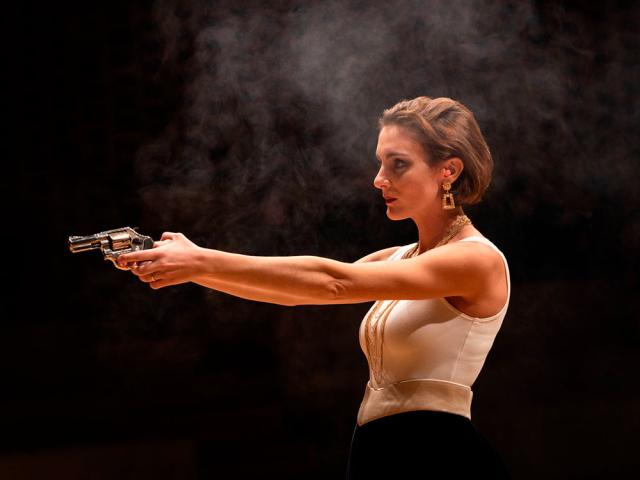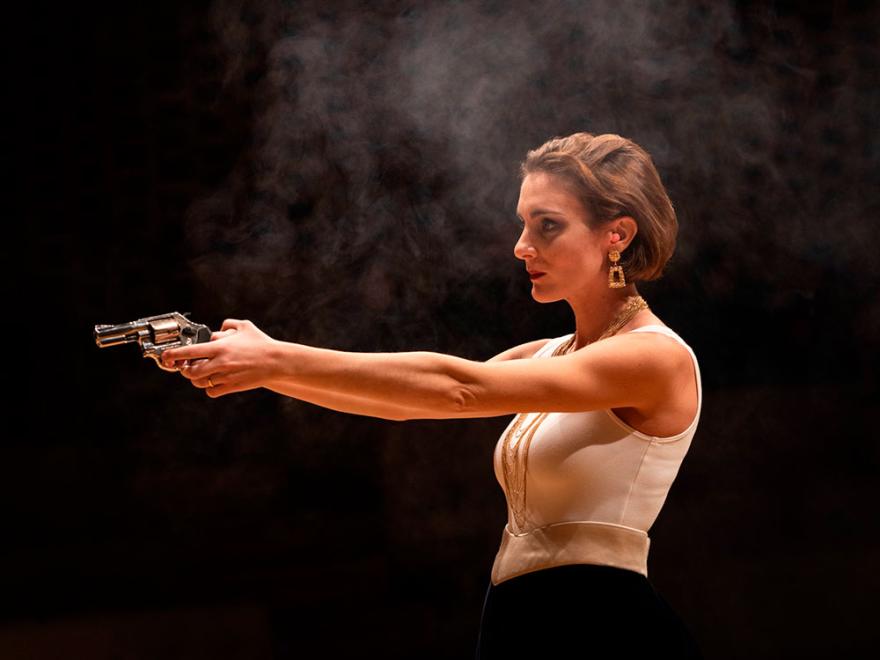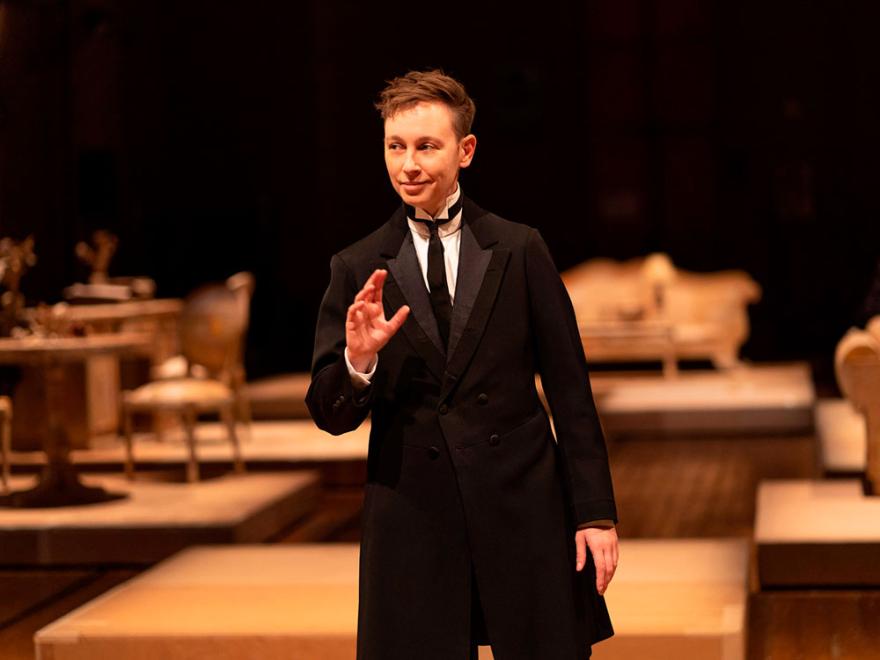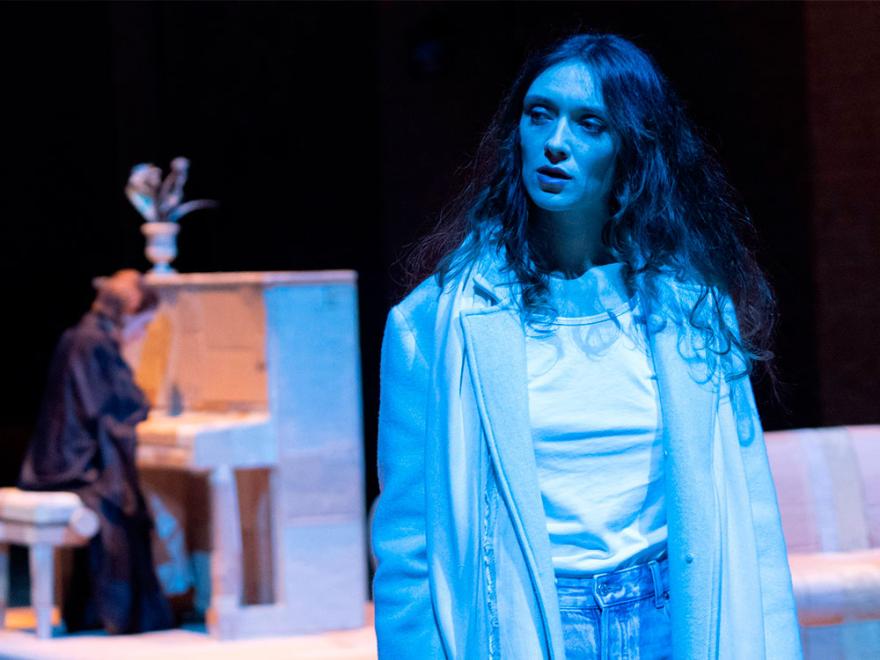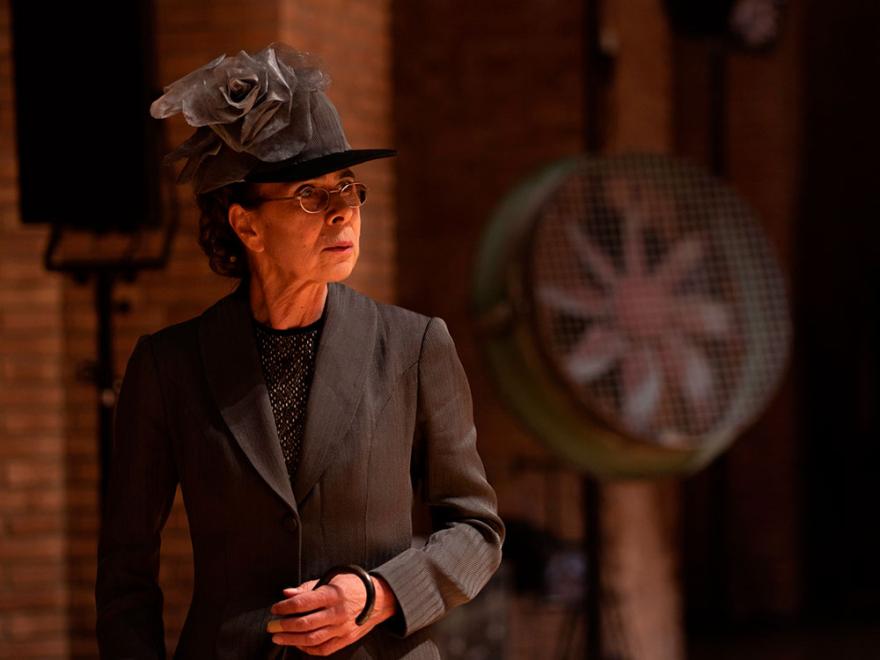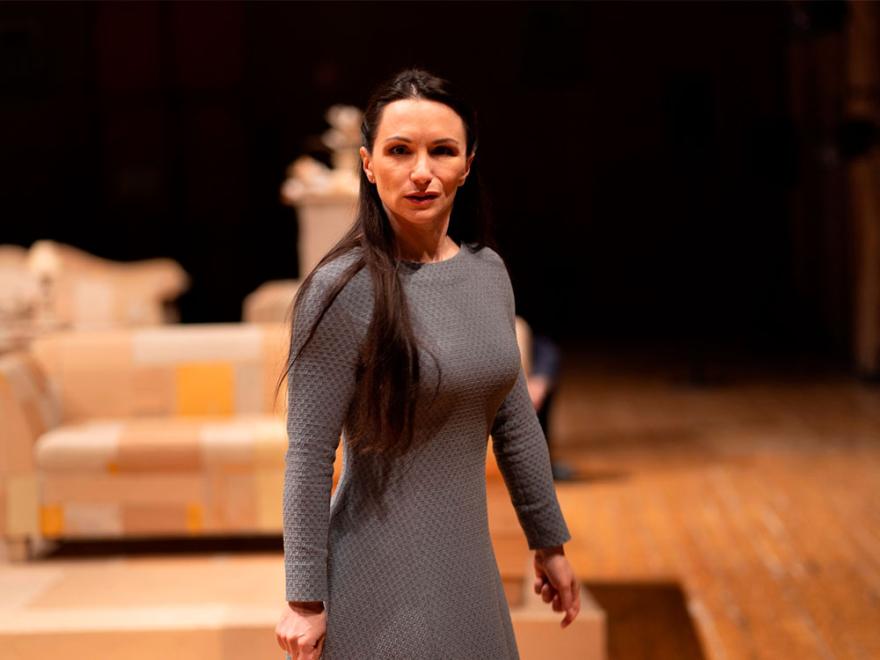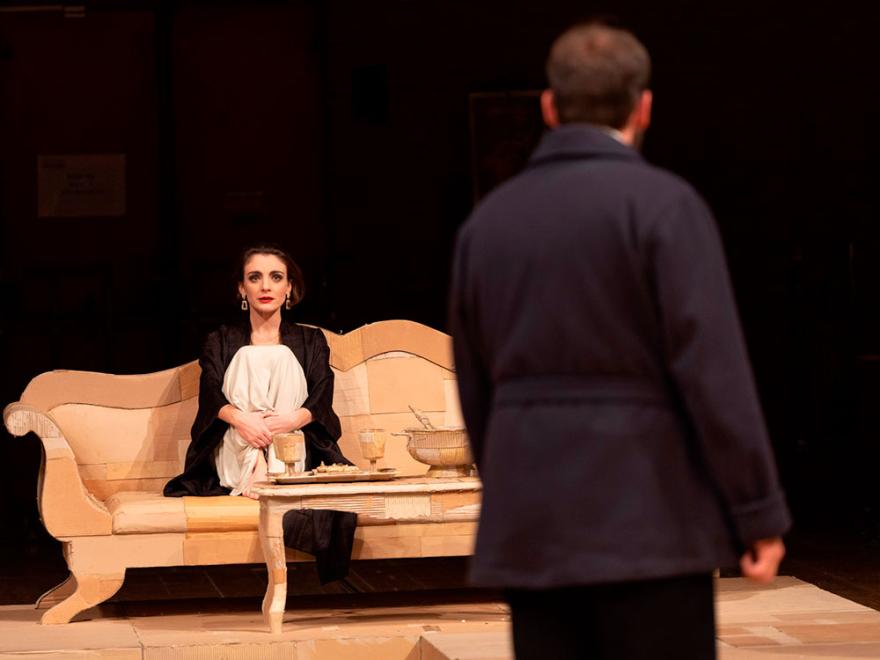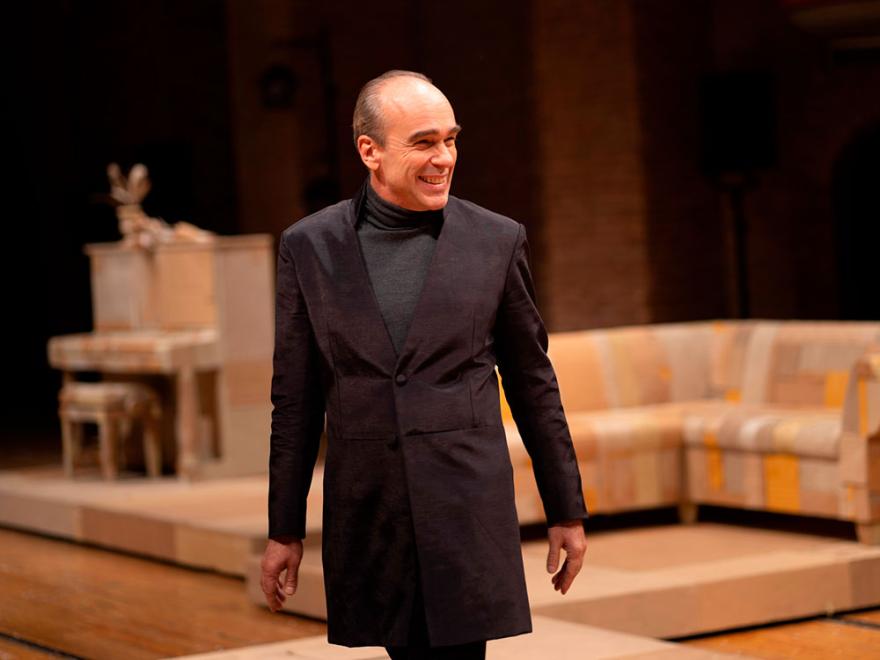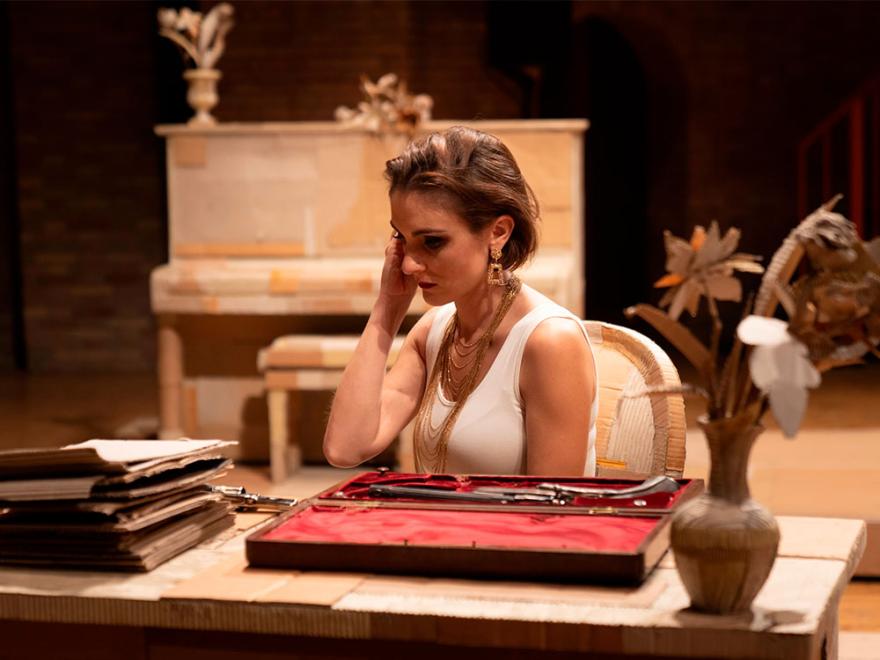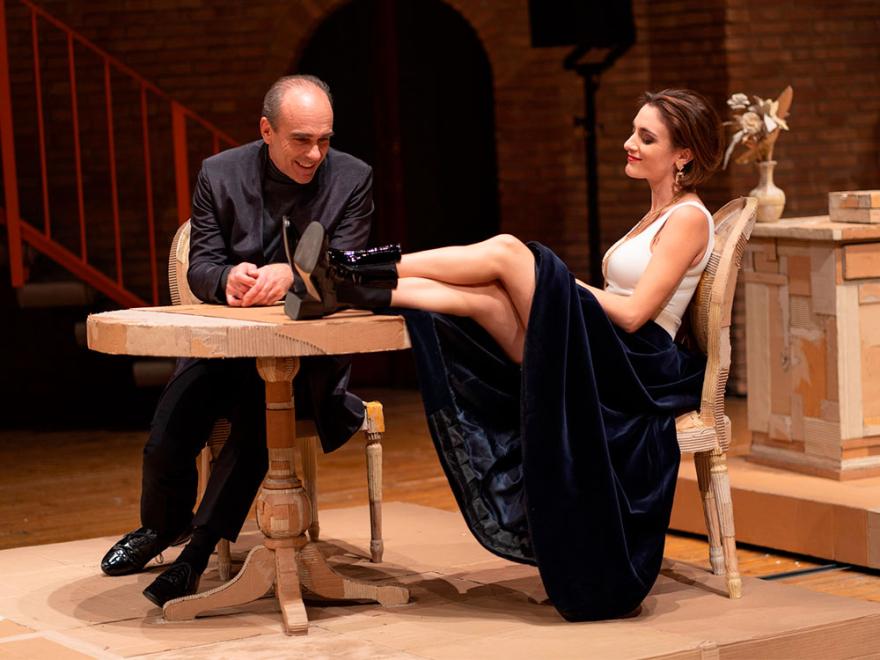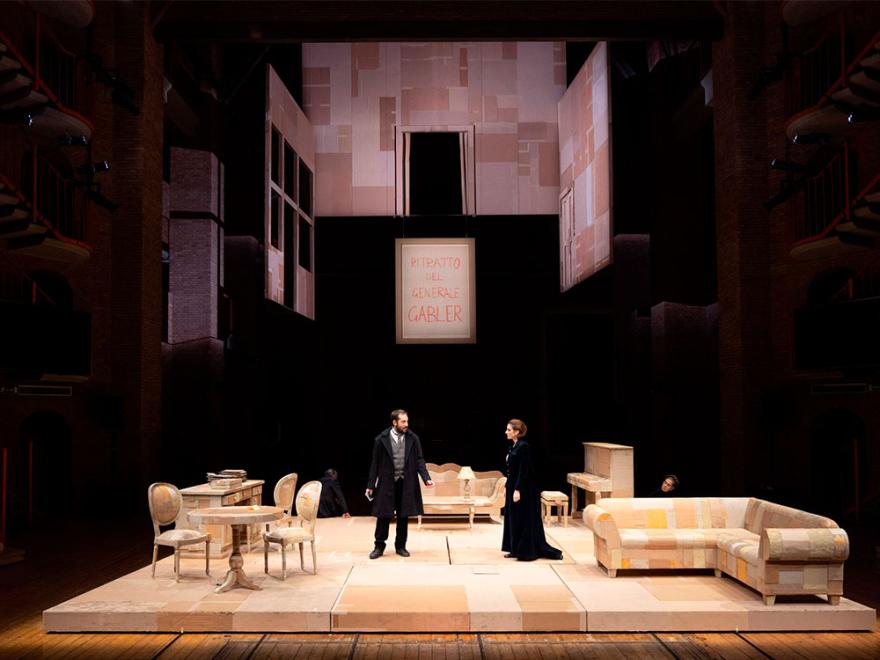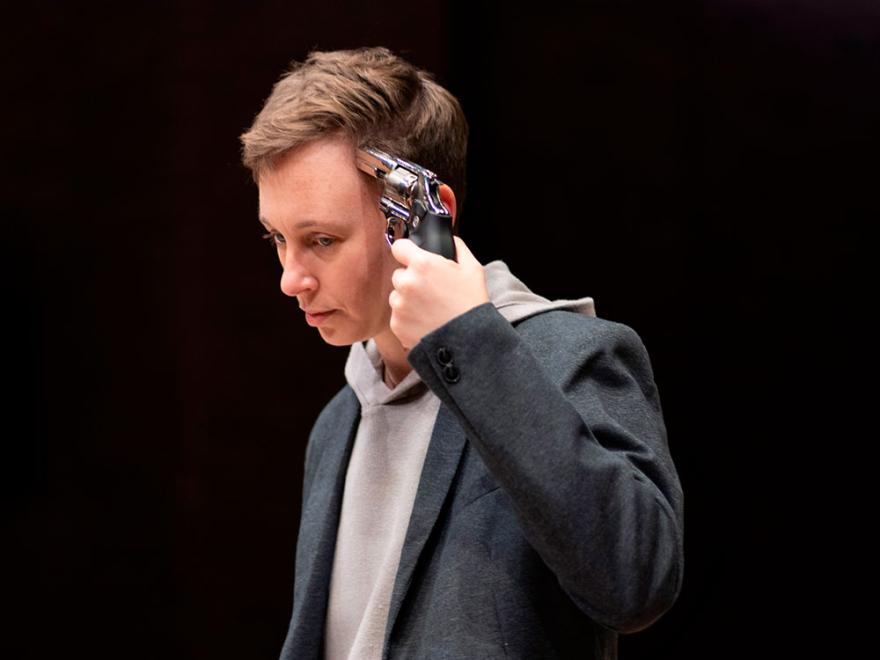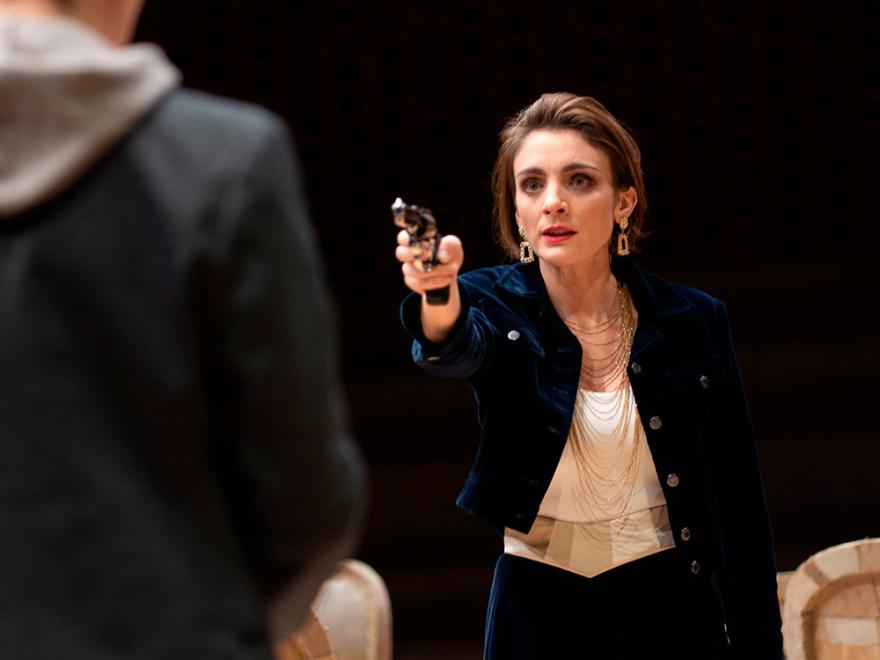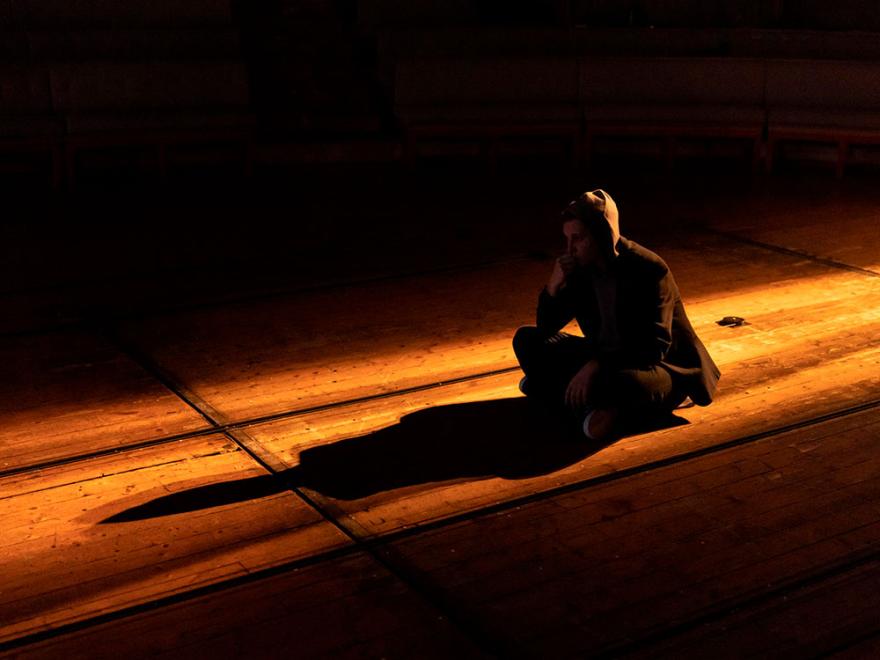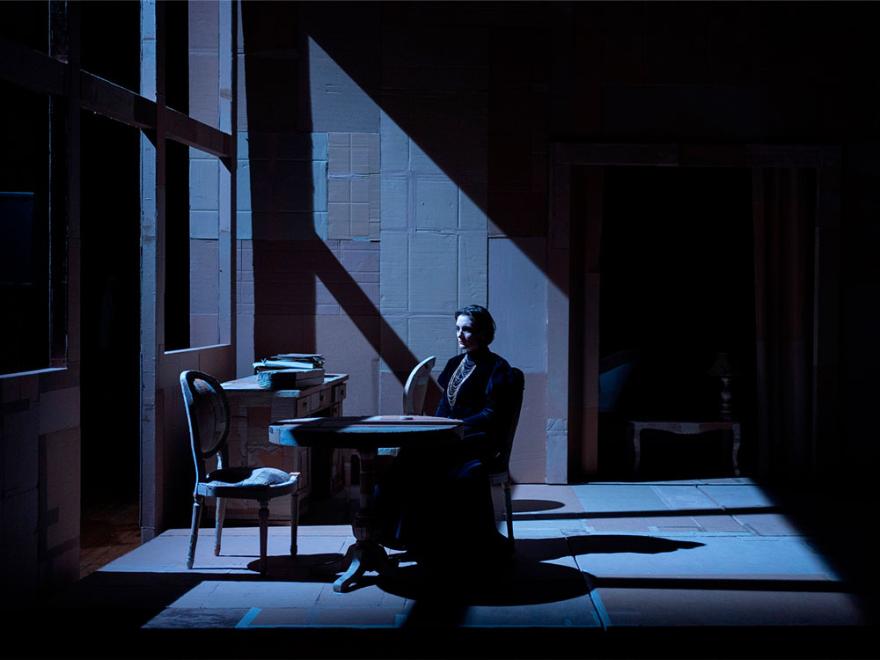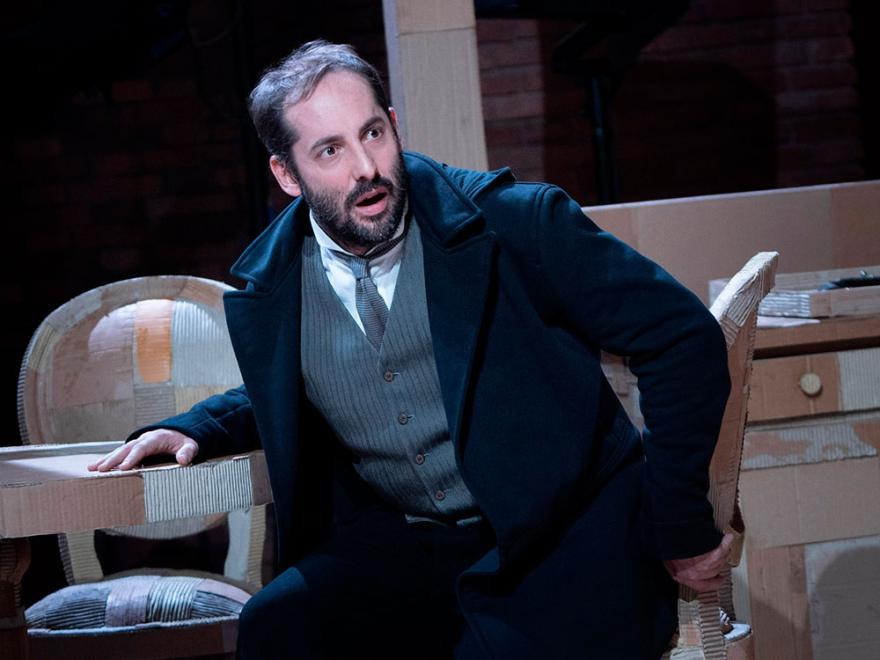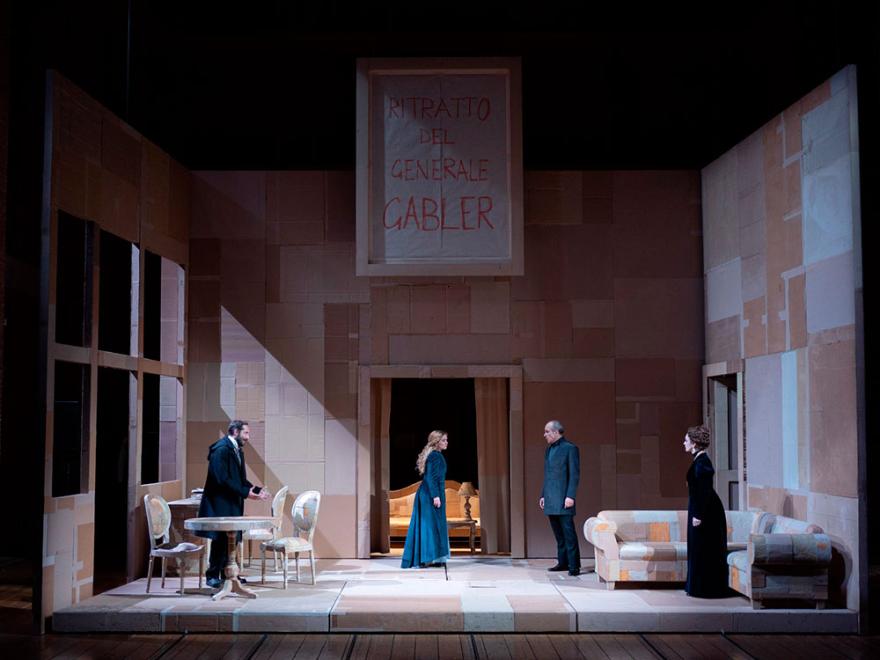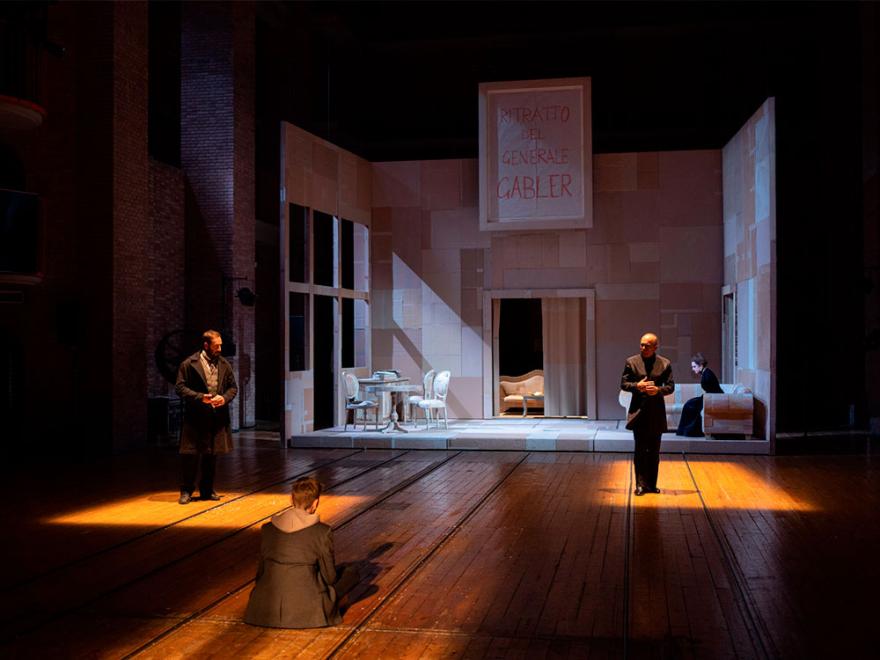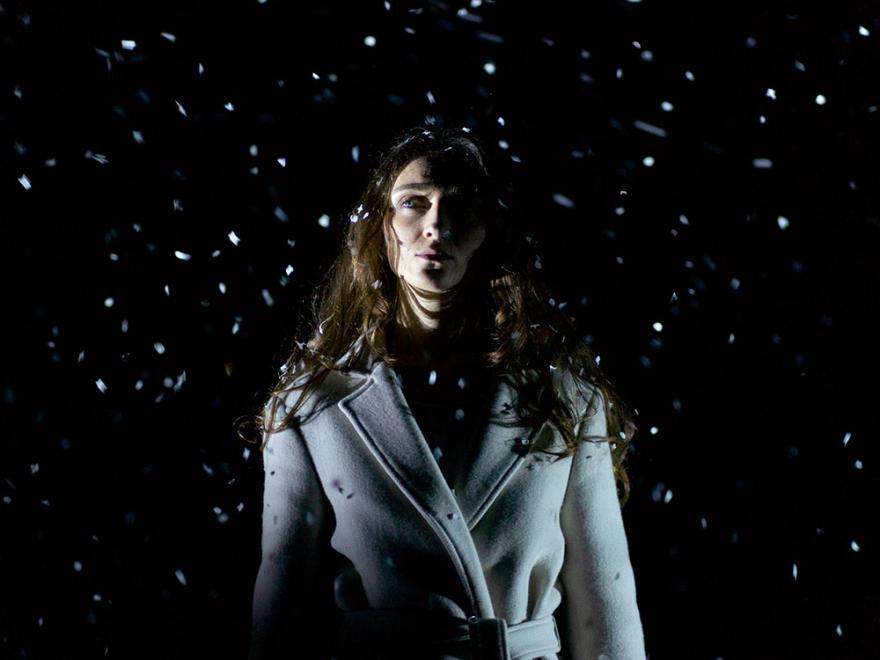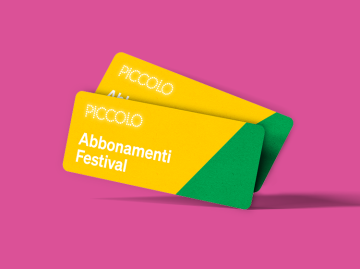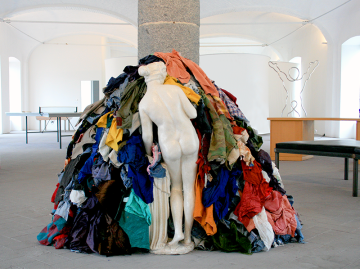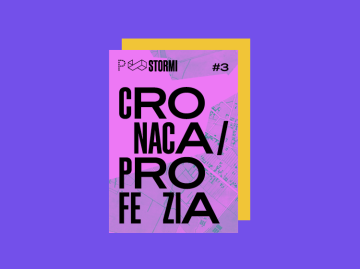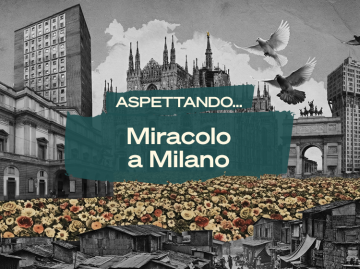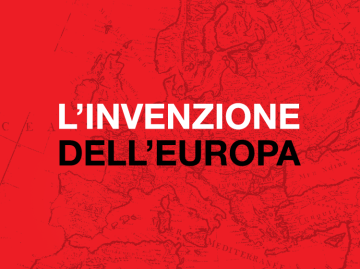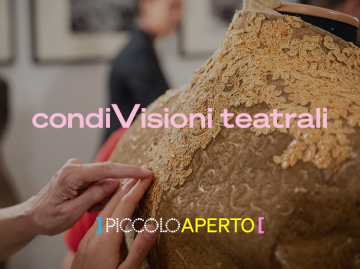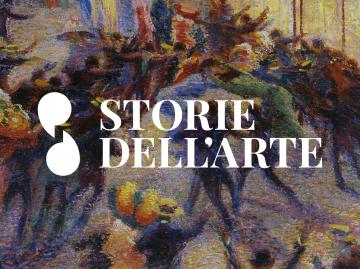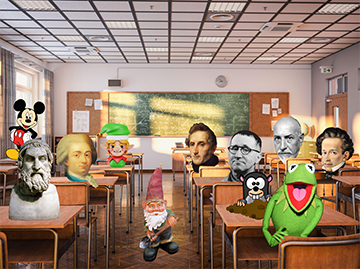This is not a rewriting, but rather a new stage play by Liv Ferracchiati that runs parallel to Hedda Gabler by Ibsen. A woman who craves beauty and freedom while bound by social convention, and a writer with an illuminated vision of the future that has the potential to revolutionise common views, but who is his own worst enemy.
After Platonov by Chekhov, Liv Ferracchiati takes on Ibsen. The story centres on a woman, Hedda Gabler, who is married to a man she does not love, Jørgen Tesman. Then Ejlert Løvborg, an anti-conventional writer who fascinated her in the past with his life lived in disregard for the rules, reappears. Løvborg returns to Hedda’s life, entrusting his theories and his very soul to a “visionary” manuscript that speaks of civil progress and how humans could free themselves of falsehood and morality. For Løvborg and Thea – the woman who “saved” him - the precious text is more than a creation, it is like a child to them.
«There are two aspects of Hedda Gabler in particular that strike me - explains Ferracchiati. The first is Hedda Gabler’s attraction for anything out of the norm, and her reverence for convention. The second is the recklessness of Løvborg and his attempt to morally recreate himself, and to calm himself, through the writing of his manuscript. However, everyone succumbs to life, and not even his visionary work can save him; on the contrary, it may be yet another loaded weapon, ready to fire; a bomb that needs to be disarmed, because Ibsen rarely lets the rebels win. The writer appears to be asking what, if any, are the conditions for human happiness. These characters from the end of the 1800s, unable to make a difference, resemble us, bound by daily and hypothetical upper-class discussions and rarely in a position to take on responsibilities. Mine is not a re-writing; it is an original work, to which I have brought the new translation created together with Andrea Meregalli. In Ibsen’s work, there are many things not said, many backstories; events that we, the audience, do not experience directly and that are spoken of by the characters; it is these that I want to explore. The “game” is to dive into Ibsen’s narrative mechanisms to examine the language, highlight the various levels of interpretation and experiment other developments in the story and with the characters, almost as though they were actors ready to pass from one performance to another rather than characters. It is fascinating to communicate with the great writers, at times they provide illuminating answers; at times they ignore you».
The plays on Thursday 1, Thursday 15 and Saturday 17 December are surtitled in English. Surtitles are curated by Prescott Studio
Duration: 130’ without interval
Learn more
Booklet
ReadAfter Platonov by Chekhov, Liv Ferracchiati takes on Ibsen. The story centres on a woman, Hedda Gabler, who is married to a man she does not love, Jørgen Tesman. Then Ejlert Løvborg, an anti-conventional writer who fascinated her in the past with his life lived in disregard for the rules, reappears. Løvborg returns to Hedda’s life, entrusting his theories and his very soul to a “visionary” manuscript that speaks of civil progress and how humans could free themselves of falsehood and morality. For Løvborg and Thea – the woman who “saved” him - the precious text is more than a creation, it is like a child to them.
«There are two aspects of Hedda Gabler in particular that strike me - explains Ferracchiati. The first is Hedda Gabler’s attraction for anything out of the norm, and her reverence for convention. The second is the recklessness of Løvborg and his attempt to morally recreate himself, and to calm himself, through the writing of his manuscript. However, everyone succumbs to life, and not even his visionary work can save him; on the contrary, it may be yet another loaded weapon, ready to fire; a bomb that needs to be disarmed, because Ibsen rarely lets the rebels win. The writer appears to be asking what, if any, are the conditions for human happiness. These characters from the end of the 1800s, unable to make a difference, resemble us, bound by daily and hypothetical upper-class discussions and rarely in a position to take on responsibilities. Mine is not a re-writing; it is an original work, to which I have brought the new translation created together with Andrea Meregalli. In Ibsen’s work, there are many things not said, many backstories; events that we, the audience, do not experience directly and that are spoken of by the characters; it is these that I want to explore. The “game” is to dive into Ibsen’s narrative mechanisms to examine the language, highlight the various levels of interpretation and experiment other developments in the story and with the characters, almost as though they were actors ready to pass from one performance to another rather than characters. It is fascinating to communicate with the great writers, at times they provide illuminating answers; at times they ignore you».
The plays on Thursday 1, Thursday 15 and Saturday 17 December are surtitled in English. Surtitles are curated by Prescott Studio
Duration: 130’ without interval
Learn more
Booklet
ReadMeetings and insights
Credits
Tickets
Category of performance Piccolo Production
Stalls full price € 40 | Discounted (under 26 and over 65) € 23
Balcony full price € 32 | Discounted (under 26 and over 65) € 20
Subscriptions
The performance is available for subscription holders
To purchase a subscription online, click here
How and where to purchase
For information, click here
COVID-19
Read the guidelines
Organised groups and audiences
For information on tickets for organised groups:
tel. +39 02 72 333 216
email promozione.pubblico@piccoloteatromilano.it
